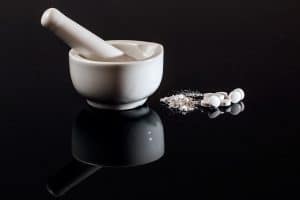What you eat and drink is absolutely and directly related to how you feel and function. On the Olympic Peninsula, we are blessed to live in a food paradise.
- In 1946, more than 50% of food came from within 20 miles of its point of consumption. On average, food travelled 40 miles from its source. Now, food is transported sometimes, thousands of miles to reach the grocery store.
Long distance food transportation consumes large quantities of fossil fuels. “We are spending far more energy to get food to the table than the energy we get from eating the food. A head of lettuce grown in the Salinas Valley of California and shipped nearly 3,000 miles to Washington, D.C., requires about 36 times as much fossil fuel energy in transport as it provides in food energy when it arrives,” says Worldwatch Research Associate Brian Halweil. - Much of the food shipped from hundreds of miles away needs to be picked while unripe then gassed to “ripen” after transport, is highly factory-processed with preservatives, and is irradiated. Further, scientists are trying to genetically modify our food so that it can last even longer. Do we really want that?
- It is believed that long-distance food trade is beneficial because everyone can buy at lowest-cost provider, but farm communities benefit very little and often suffer as a result of freer trade in agricultural goods.
“The economic benefits of food trade are a myth. The big winners are agribusiness monopolies that ship, trade, and process food. Agricultural policies, including the new Farm Bill, tend to favor factory farms, giant supermarkets, and long-distance trade, and cheap, subsidized fossil fuels encourage long-distance shipping. The big losers are the world’s farmers and their surrounding communities.” - Locally grown, fresh food actually tastes like real food. Food grown locally is harvested when ripe and doesn’t have to be fumigated, refrigerated, or packaged for long-distance traveling or altered for long shelf-life. Unlike foods that travel long distances- fresh food isn’t artificially ripened.
Food grown locally is SAFE. You know who grow the food. You can visit the farms. You can know where all of your food comes from.
Local food allows you to eat “thoughtfully.” If we listen to what we really want, it should be no surprise that our instincts follow the cosmos–thousands of years of evolution have fine-tuned us to be in synchronicity with the food cycles of the earth. The rhythms of the earth, our earth, are intrinsic to us. Eating with the seasons is what is most natural to us, even though urban living and the technological age may have disconnected us from this knowledge.
The practice of following the rhythms of the cosmos is undoubtedly the best way for us to eat. Eating with the seasons provides the foods that our bodies naturally need, at different times of the year. Foods are at their most delicious when in season, as that is when they reach their peak flavor.
Local food is Simple. Few things define the current debauchery of the American food system like the additive/stabilizing/processing industry. While factory farms certainly have their place in the anti-ecological category, the unpronounceable ingredient and laboratory-chemical manipulation system deserve equal billing
Localization offers a seamless option that insures not only accountability, but ultimate community-based food security. Historically, regions dependent on food imports have always been vulnerable to environmental, social, political, and integrity breaches. Bioregional food security carries ramifications beyond a warm fuzzy feel-good emotion. It’s survival. That’s kind of a good ecological idea.
Where to Buy Your Food
Arcadia Farm and Inn
Gail Gates
149 Blackbird Lane
Port Angeles, WA 98363
(360) 888-4022
Clark Farms – Grass Fed Beef and Pastured Pork
Holly and Tom Clark
863 E. Anderson
Sequim WA 98382
(360) 681-5499
[email protected]
Johnston Farm – Produce and Eggs
Christie Johnston
1046 Heuhslein Rd
Port Angeles, WA 98362
(360) 452-1936
Lavender Skep Apiary – Honey
Ed Giersch
(360) 457-7686
Nash’s Organic Produce
4681 Sequim-Dungeness Way,
Sequim, WA 98382
(360) 683-4642
Olympic Onion Farm
Vince Gipson
63 Jake Way
Sequim, WA, 98382
360 775-9322
River Run Farm – Organic Produce
Sallie Constant
2800 Woodcock Rd, Sequim, WA 98382
[email protected]
The Family Farm – Flowers and Produce
3931 Old Olympic Hwy
Port Angeles, WA 98362
(360) 417-6710
The Food Co-Op
414 Kearney Street,
Port Townsend, WA 98368




1 Comment
Leave your reply.